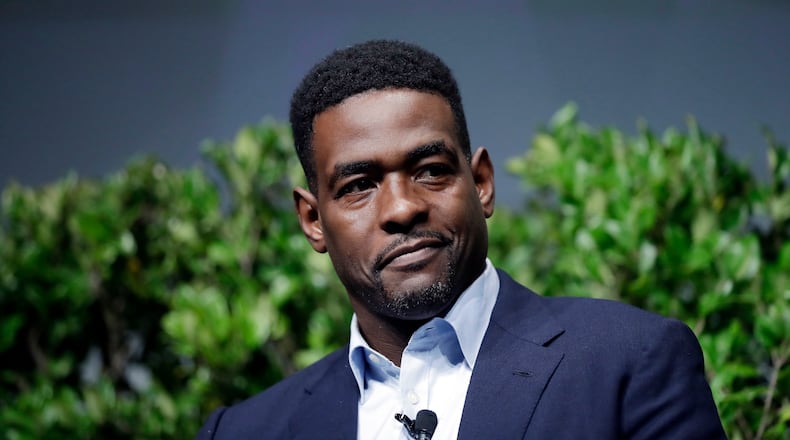Three days after Jacob Blake, a Black man, was shot seven times by a white Wisconsin police officer, the Milwaukee Bucks said they would not play their postseason game that night.
It was Aug. 26, 2020, and analyst Kenny Smith — in solidarity with the players — walked off the TNT set in Atlanta unable and unwilling to focus on basketball. Chris Webber, a former NBA star and fellow analyst for TNT, followed up on-air with an emotional and riveting message about violence against Blacks that reverberated across social platforms.
Among other things, Webber said to his audience, “I keep hearing the question what’s next, what’s next. Well, you have to plan what’s next. You have to figure out what’s next. Very proud of the players. I don’t know the next steps. Don’t really care what the next steps are because the first steps are to garner attention.”
Webber’s plea and the protests that arose across the U.S. certainly garnered attention.
Then, it was on to next steps. One was launched this week. Webber partnered with Morehouse College to lead a course “Activism in Sports and Culture” through the online on-demand streaming platform Coursera. The course is free to audit, or $49 for credits.
“The division in our country can only be healed if we have the courage to have honest conversations about inequity in our society and the responsibility we each have to understand its roots and find solutions,” said David A. Thomas, president of Morehouse. “Sports has often been among the earliest and most visible arenas in which to raise awareness about racial challenges. Morehouse is uniquely positioned to serve as the center point for one of the most consequential conversations of our time.”
The opening courses are titled “The Icons,” “The Reluctant Protestor,” “The Commentator,” and “The Organizer.”
In the course introduction, Webber, who was part of one of the most vivid Black-identity culture shifts in the history of college basketball, the Fab 5 at Michigan, talks about the power of people in sports to persuade, from Atlanta-resident John Carlos in the 1968 Olympics to the NBA’s LeBron James today.
Edwin Moses — a Morehouse graduate, Atlanta resident and two-time Olympic gold medal winner in the hurdles — said the aim of the school and Webber with the course is not to ignite fury in sports among Black athletes. It’s much more constructive than that.
“I don’t think he’s going to be building radicals; he’s going to be building rational people who understand the environment,” Moses said. “What is the environment you come from and what is the environment you want to be in and how do you make it work professionally.
“There is so much more to this discussion that is not reported on or seen by the public. Sports activism is a lot more than sports. It is voting rights, it is finding solutions for intractable problems. The students interested in this course want to know about voter registration, they want to be lawyers. They want to get ‘in’.”
Webber was not available for comment, but Moses said Morehouse chose the right envoy for the course.
“There is a heavy demand for knowledge and information and hearing from somebody like Chris Webber will go a long way,” Moses said. “Chris is sophisticated and intelligent and he has a lot to offer through this course. I’m sure his standard is very equivalent to the Morehouse standard.”
Webber’s class is receiving attention outside the school, but Moses said Morehouse is already deeply entrenched in the space of social justice and sports and demolishing long-standing hierarchies, led by Thomas and David Rice, professor of Psychology at Morehouse, and a nationally recognized authority on race and sports and culture. Moses is the Chairman Emeritus of the United States Anti-doping Agency and Chairman of the Laureus Sport for Good Foundation, which serves youth through sport worldwide. He has spoken often about the issues of race and sports under the Laureus and Morehouse flag.
“Any platform for bringing in people of color and saying ‘I know this, I’ve done this, you can do it, too’ is huge,” Moses said. “It would give them a leg up, whether in high school, or thinking about what college, or graduate school, to be able to see a Chris Webber, a Edwin Moses, a Dr. David Rice. That’s significant right now because for many years you could never find a mentor to pull you through these organizations.”
About the Author
The Latest
Featured


